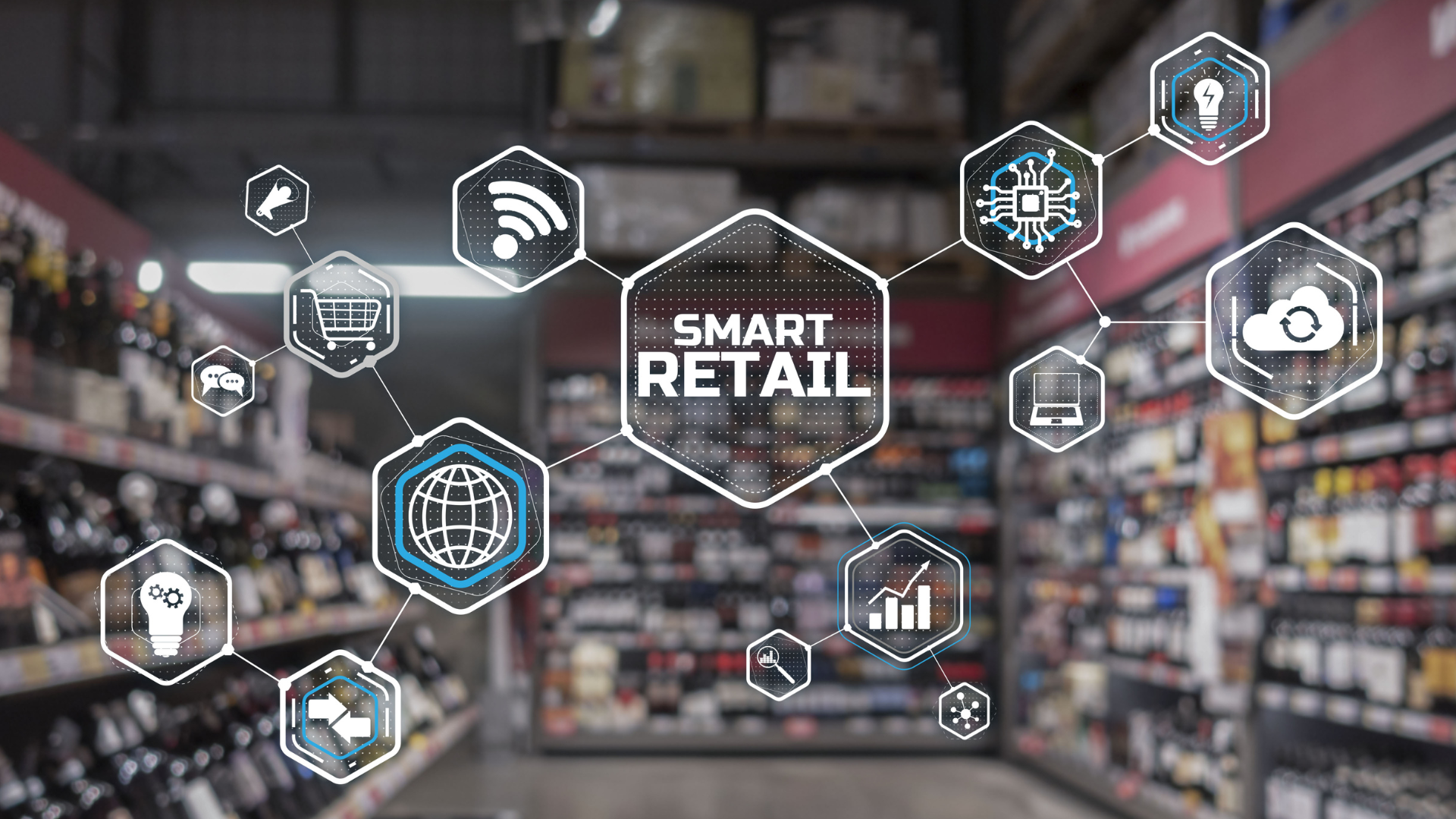The retail industry is at a turning point, and Artificial Intelligence is the growth engine needed to compete. At the heart of this transformation are AI Agents for retail: intelligent software that is revolutionizing every aspect of the business, from operational efficiency to customer interaction.
As the Milan Retail Forum approaches, taking place on November 12th and 13th, it’s crucial to analyze the key trends. In this article, we review the Forum’s agenda to identify the most interesting insights from the perspective of AI and Intelligent Agents, and understand how retailers are preparing to integrate this technology.
Estimated reading time: 8 minutes
Table of contents
- AI Agents for Retail: From Chatbots to Digital Consultants
- The Phygital Challenge: AI Enters the Store
- In-Store Innovation and Data-Driven Operations
- Operational Efficiency and Sustainability: Back-End AI
- Preparing for the Retail Forum: How to Create AI Agents for Retail
- How to Choose the AI Agents Platform: Build vs. Buy
AI Agents for Retail: From Chatbots to Digital Consultants
AI Agents for Retail are moving beyond simple chatbots to become true brand “digital consultants.” The Retail Forum will preview discussions on how AI is driving omnichannel innovation for a 360° customer experience.
Key topics include:
- Omnichannel Consistency and Dynamic Loyalty: This topic will be the focus of the panel “From AI Agents in Customer Care to International Growth: How Automation and Localization Create a Retail CX That Converts and Builds Loyalty.” It will explore how to build digital experiences across all channels that ensure consistency and continuity in the customer journey. The use of data and advanced technologies will be at the heart of the discussion to create dynamic and personalized loyalty programs that convert and build loyalty.
- Speed and Personalization in Marketing: The case study, “How AI Has Revolutionized the Speed and Responsiveness of Marketing Strategies: Concrete Results, Integration Strategies, and Overcoming Obstacles,” will explore how AI has transformed marketing strategies. The roadmap for automating operations and integrating AI into forecasting and proactively adapting to consumer trends will be outlined, with the goal of achieving better targeting and personalization.
- Measuring Performance Without Barriers: This topic will be addressed in several sessions, particularly in the roundtable “Omnichannel & AI: Innovative Processes for 360° Retail.” It will be discussed how AI is driving seamless personalization and which metrics are essential for measuring and improving performance in this data-driven ecosystem.
The Phygital Challenge: AI Enters the Store

The vision of a 360° Customer Experience cannot ignore the physical store. AI is not confined to digital, but is the key tool for creating seamless phygital cohesion.
The Retail Forum is dedicating specific spaces to this transition, particularly with the roundtable “From Data to Dialogue: Intelligent Agents and the New In-Store Experience” and the panel “AI for the Best CX: Understanding, Engaging, and Building Customer Loyalty.” These sessions will explore how AI Agents for Retail are transforming the store from a simple sales space to a highly responsive environment.
In-Store Innovation and Data-Driven Operations
As anticipated on the agenda, the physical store is transforming into a phygital environment powered by artificial intelligence, with direct impacts on customer experience and operational efficiency. The Retail Forum will host roundtables and panels to answer crucial questions:
The roundtable “From Data to Dialogue” will focus on the technologies that are transforming the in-store experience and how the intersection between physical and digital is taking place. The central challenge will be real-time personalization in the physical store.
The sessions dedicated to customer experience will explore how AI and AI Agents for Retail may enable concrete personalization of the customer journey. In the operational sphere, data-driven decisions will be demonstrated that enable a tailored assortment to effectively respond to local preferences, and the use of smart shelves to proactively improve product availability and reduce out-of-stocks.
Operational Efficiency and Sustainability: Back-End AI
AI agents for Retail don’t just enhance the front-end of sales; they have a massive impact on business management, especially in resource optimization and sustainability (reducing waste and obsolescence).
The Retail Forum agenda promises in-depth discussions on how AI is optimizing the back-end of retail:
Inventory Prevention and Optimization: Leading companies will advance their strategies by using AI to predict and reduce in-store obsolescence. This translates into improved product allocation and dynamic pricing and discount strategy definition.
Intelligent Inventory: The Forum will explore how AI-based solutions are transforming simple physical inventory into a business intelligence tool, providing accurate and strategic data for the entire supply chain.
Preparing for the Retail Forum: How to Create AI Agents for Retail
The Retail Forum will address the following issues in several sessions: the recurring challenge in many of the scheduled presentations is to move from tactical adoption to true strategic integration of AI. Therefore, it’s crucial for leaders to prepare by knowing what to look for in an AI Agent solution and how to navigate the technology offerings.
The Essential Characteristics of an AI Agents for Retail
Effective AI Agents for Retail must not only be “intelligent,” but also reliable and integrated. Key characteristics include:
- Trustworthy AI: The Agent must operate with transparency, ethics, and justifiable decisions, allowing the retailer to trust its insights and actions.
- Native Omnichannel: It must seamlessly integrate across all touchpoints, from on-site chatbots to WhatsApp support, to in-store interactions.
- Data-Driven Personalization: The ability to use data to create dynamic loyalty programs, simplify product searches, and provide contextual responses is essential.
How to Choose the AI Agents Platform: Build vs. Buy

The choice between building AI internally (using development frameworks) or adopting ready-made solutions (No-Code/Low-Code platforms) is strategic.
- Assess the Need for Customization (Flexibility):
Start by determining whether your AI Agents for Retail require maximum customization, perfectly adhering to unique processes and proprietary data (Build orientation), or whether a configurable solution, albeit within the limitations of the existing framework, is sufficient (Buy orientation).
- Define Your Time-to-Market (Implementation Speed):
If your goal is to accelerate adoption and achieve rapid results (fast time to market) from your AI Agents for Retail, no-code/low-code (buy) platforms are preferable. If you can afford longer development times and have specialized IT resources, you can opt for build.
- Plan Governance and Scalability:
Determine whether you can and want to dedicate resources to building a robust and agile AI governance ecosystem internally (required for Build). Buy platforms often include pre-built governance and scalability mechanisms.
- Analyze the Optimal Cost Model (Cost):
Evaluate whether your budget is better suited to a high initial cost and maintenance for developers and infrastructure (Build) or a more predictable, medium-term cost based on licenses and usage (Buy).
- Compare Internal vs. External Competencies:
In summary, the final decision will depend on the company’s digital maturity and the balance between the need for a highly specific solution (which requires the Build approach) and the priority of rapid adoption and integration (favored by the Buy approach).
Goals | AI Framework (Build) | No-Code/Low-Code Platform (Buy) |
Flexibility and Customization | Maximum. It allows you to create custom AI, perfectly tailored to your company’s unique processes and proprietary data sets. | Good. The solution is configurable, but customization is limited by the platform’s framework and structure. |
| Speed of Implementation | Slow. Requires specialized IT resources and long development times. | Fast. It allows for faster adoption and time to market. |
| Governance and Scalability | It requires a robust and agile AI governance ecosystem to be built internally. | Includes built-in governance and scalability mechanisms. |
| Costs | High initial and maintenance costs for developers and infrastructure. | Cost based on licenses and usage, predictable in the medium term. |
The decision will depend on the company’s digital maturity and whether it requires a highly specific solution (Build) or rapid adoption and integration (Buy).
As highlighted in the study “The Future of Intelligent Automation: How Low-Code/No-Code Platforms are Transforming AI Decisioning,” published on ResearchGate in 2025, low-code/no-code platforms like Crafter.ai are simplifying the development of AI Agents for Retail solutions, enabling companies to optimize decision-making and automation processes.
AI at Retail Forum 2025
The Retail Forum (November 12-13) will not only showcase case studies, but also be a crucial opportunity to address the governance and leadership challenges associated with AI.
The agenda includes key sessions, such as “From Black Box to Trustworthy AI,” which will discuss the ethical guidelines and risks associated with AI adoption and provide guidance for building an effective and agile AI governance ecosystem. Issues that might prompt decision makers to pause before adopting AI will be addressed, with the goal of rapidly developing and deploying trustworthy AI solutions, increasing business value and competitiveness.
The November event therefore promises to be a guiding light for decision makers seeking to transform AI from a simple technological tool into a strategic competitive advantage in the retail of the future.
FAQs – AI AGENTS FOR RETAIL
AI Agents for retail are intelligent software that automate complex tasks and interact with customers and business systems, going beyond the concept of a simple chatbot.semplice chatbot.
AI Agents for Retail are the key tool for creating seamless phygital cohesion.
In-store AI has two main roles:
Real-Time Personalization: Using technologies to enable real-time personalization in the physical store.
Data Hub and In-Store Operations: Transforming the store into an intelligent data hub and enabling data-driven decisions for tailored assortment and inventory management.
The choice depends on your business priorities:
Build (Development Framework): Offers maximum flexibility and customization (tailor-made AI) but involves slow implementation times and a high initial cost for internal development and governance management.
Buy (No-Code/Low-Code Platforms): Allows for rapid implementation and license-based costs (more predictable). Customization is good, but limited by the platform framework’s limitations.

